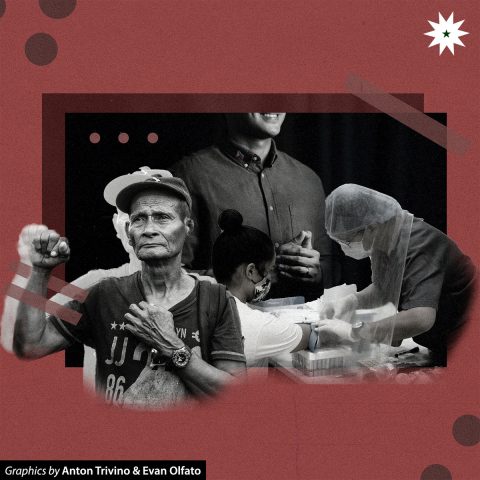
Last December 17 to 19, Alyansang Tapat sa Lasallista held a three-part webinar over Zoom and Facebook Live titled Tapatan 2020: Padayon, Pinas!, discussing issues surrounding vulnerable groups, the Philippine health sector, and governance, especially in the context of the pandemic.
Rights for vulnerable groups
“As student leaders, you have the means and resources to help advance their rights and welfare,” said keynote speaker Sen. Risa Hontiveros.
The first webinar covered the plight of vulnerable groups whom Dr. Socorro Reyes, Senior Regional Governance Advisor of the Center for Legislative Development International, described as those who lack stable means of livelihood and healthcare. “Ang pagiging vulnerable po ay unregistered, unrecorded, unrecognized, [and] discriminated,” summarized Samira Gutoc, a women’s and internally displaced persons’ rights advocate.
(Being vulnerable means being unregistered, unrecorded, unrecognized, [and] discriminated.)
Those who are red-tagged and arrested without due process, together with women in patriarchal relationships, also fall under this category.
“People who are vulnerable are [those] who are not being listened to or are being forcibly silenced,” added Rey Valmores-Salinas, Acting Secretary-General of Bahaghari, raising the issue of sexual harassment toward women. Reyes also reiterated the importance of respect and dignity in a relationship, mentioning that cultural relativism has long been used to downplay abuse toward women by making it acceptable in some cultures.
“This fight is already our own. We need to embody the role of the youth in shaping history and [make] the Philippines and the world a place worth inheriting,” Salinas declared.
Improving the health sector
With the second webinar on the country’s healthcare system, keynote speaker and University of the Philippines COVID-19 Response Team member Dr. Darwin Bandoy warned the audience that cases would rise again “if we become lax with the observance of public health protocols.”
Dr. Guido David of the OCTA Research Team, meanwhile, noted that there has been a downward trend in COVID-19 cases and hospital bed occupancy in Metro Manila since August. Despite the positive outlook, Dr. Edelina De La Paz, Chairperson of the Health Alliance for Democracy, cautioned that other diseases, such as tuberculosis and influenza, may be overlooked as some hospitals may prioritize treating cases of COVID-19.
Youth for Mental Health Coalition, Inc. Founder Dr. RJ Naguit also expressed concern on the non-prioritization of the health sector, which De La Paz argued came as revenue-enhancing sectors are prioritized and health is commercialized and commoditized.
“Support the economic needs of the people because that is where anxieties spring from,” De La Paz suggested.
Looking forward, Naguit expressed the importance of science-based action and addressing mistrust toward government agencies. De La Paz also championed a shift to telemedicine as the responsibility for ensuring universal access to healthcare falls on the government.
The need for political reform
“Tulungan ang kailangang tulungan; punan ang kailangang punan; gawin ang kayang gawin dito at ngayon,” remarked Vice President Leni Robredo during her keynote speech, emphasizing the need for good governance and youth participation during this time.
(Help those in need; fill what is lacking; do what you can here and now.)
Dr. Ronald Holmes, an associate professor in the Political Science Department, said that the state of governance in the country is “a bit problematic”, both from the government’s and the citizens’ perspectives. The Philippines, he expounded, has weak government institutions in terms of efficiently distributing resources and has limited political participation among the youth.
Marikina City Second District Rep. Stella Quimbo echoed Holmes’ sentiments, outlining her own standards of good governance, namely evidence-based decisions; engagement with constituents; “e-ccountability”, or accountability in the digital age; and efficiency of solutions.
For Quimbo, the problem lies in the lack of infrastructure and logistics to mobilize policies and programs. “Nandiyan ‘yung intent and pera, pero wala ‘yung kotse,” she described.
(The money and intent are there, but there is no way to mobilize [the program].)
Holmes succinctly pointed out that the country’s current political situation is a result of weak political parties and the proliferation of political clans. Kabataan Party-list Rep. Sarah Elago also cited the World Bank’s Worldwide Governance Indicators where the Philippines was graded poorly in indicators like rule of law and voice of accountability.
Holmes heavily emphasized the significance of political reforms, but “what political reforms can we expect from a Congress that has basically been opposed to it largely because it will not serve the interest of the majority of the legislators?” With citizens empowered enough to “exercise the pressure”, Holmes said, movements can push through to create meaningful systemic reforms.
